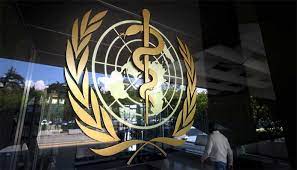
GENEVA, March 23 (NNN-AGENCIES) — The World Health Organization sounded the alarm on the worsening health situation in the Democratic Republic of Congo, where cholera, measles, mpox, anthrax and plague are wreaking
havoc.
The health crisis is being exacerbated by violence, climate shocks, displacement, poverty and malnutrition, the WHO said, calling for an urgent funding surge.
“The challenges faced by the people of DRC have reached alarming levels,” said Boureima Hama Sambo, the WHO representative to the nation.
“In many parts of the country, particularly in eastern DRC, civilians are tragically caught in renewed fighting, and hospitals are overwhelmed with injured people,” he told a press briefing in Geneva, via video-link from
Kinshasa.
He said the DRC was facing its worst cholera outbreak since 2017, with 50,000 suspected cases and 470 deaths recorded in 2023. It is also battling the largest epidemic of measles since 2019, with close to 28,000 cases and 750 deaths so far in 2024.
Furthermore, the still-emerging outbreak of mpox, formerly known as monkeypox, is on the rise, with nearly 4,000 suspected cases and 271 deaths so far this year.
More than two-thirds of the cases are being reported in children.
“Anthrax and plague have been also affecting the communities in eastern DRC in the last months,” Sambo added.
The country has suffered the second-largest displacement crisis in the world after Sudan, with close to 10 million people on the move, while poverty and hunger affect a quarter of the population, or 25.4 million people, he said.
“Close to 20 million people require health assistance in 2024,” he added, but the crisis and the response remain “severely underfunded”.
In February, the UN appealed for $2.6 billion to provide humanitarian aid to 8.7 million of those in need in the DRC.
“The world should not turn a blind eye to a situation that could have severe knock-on effects for security and health in the region,” said Sambo.
Mpox cases are spreading to previously-unaffected areas, including the capital Kinshasa, with the WHO concerned about the threat of expansion into neighbouring countries.
The proportion of deaths is rising with the case fatality rate seven percent this year — compared to less than 0.2 percent globally.
Mpox was first discovered in humans in 1970 in the DRC, with the spread since then mainly limited to certain West and Central African nations.
But in May 2022, mpox infections surged worldwide among men who have sex with men.
The cases in the DRC are clade I of the virus, which is 10 times more virulent than the clade II strain which erupted around the world.
But the current outbreak in the DRC includes, for the first time, reported sexual transmission of clade I mpox.
The UN health agency is trying to better understand the epidemiology in different parts of the vast country. — NNN-AGENCIES






